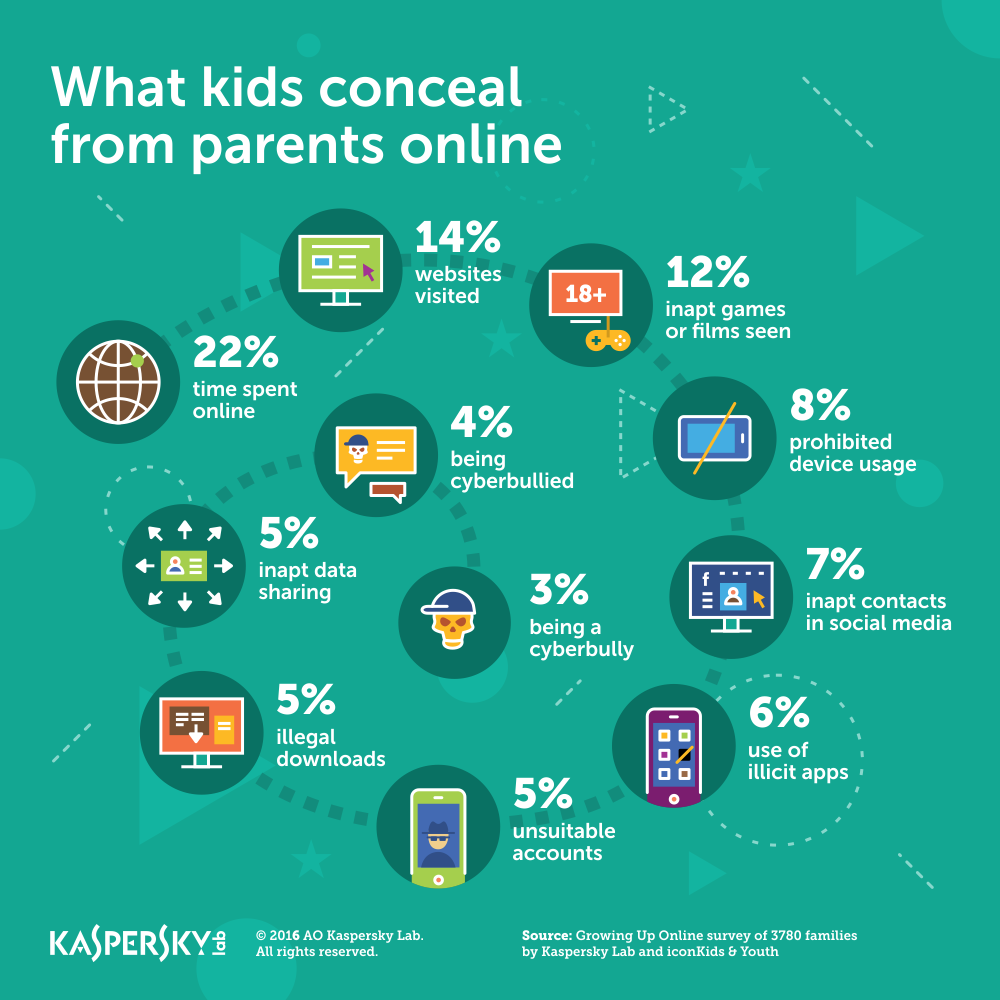It is no wonder that children may have a ton of secrets that they would want to keep from their parents. It’s also obvious that, due to peculiarities of the Internet era, a portion of those secrets, to some extent, pertain to the Internet and computers. That’s absolutely fine, but not when those secrets start to pose a threat to the child’s well-being.
Kaspersky Lab recently conducted research to see how both children and their parents spend their time online. To ensure authenticity of responses, the children and parents were questioned separately. In total, 44% of children admitted to having secrets that their parents shouldn’t find out about. That does not necessarily mean the rest of the surveyed children don’t have secrets; more likely, that means 44% of kids trusted their parents who promised not to look at their answers.
The majority of ‘secret keepers’ hides relatively innocent facts, like the duration of their online time. However, there are rather scary secrets. Some children use access devices without their parents’ consent to download certain programs, or visit websites their parents wouldn’t have approved of. Some kids socialize with people their parents dislike or even don’t know about. Clearly, those secrets are dangerous, but the extent of danger can be assessed only on a case-by-case basis.

There are even more disturbing secrets, though. For example: 4% of children don’t tell their parents that they have been or are being cyberbulllied. While the figure seems low, this problem may pose real danger to a kid. Also, in some countries the portion of children hiding their online secrets is higher; for instance, in the US, 15% of kids have online secrets.
This is the problem that should bother parents for real. Until they know about it, they might not be around to help at the right time. Cyberbullying is an important topic on our website, and we have a lot of useful tips designed specifically for parents. However, the key consideration is the following: in order to help your kid through hard times, parents should establish a trusting relationship with their child. Frank conversations about dangers that await online will help kids to navigate stormy waters of the Internet and avoid situations when they would need their parents’ help.
Moreover, children admit lacking useful information about Internet threats. Three-fourths of children acknowledged that if their parents talk to them about dangers on the Internet more often, it would certainly help them to stay safe in the Internet. It was also found out children understand effectiveness of parental control tools against online dangers. They say that if their parents recommend appropriate applications, warn about potentially dangerous programs, and advise on websites that are ok for children to visit they will be safer.
Full report is available in PDF file.
 Kids Safety
Kids Safety





